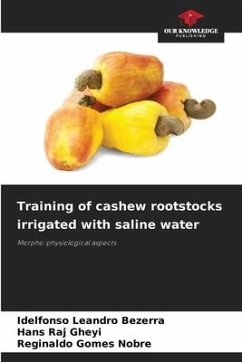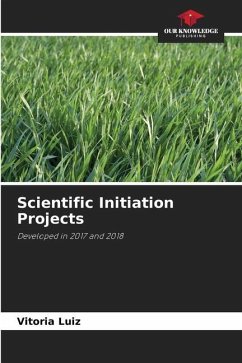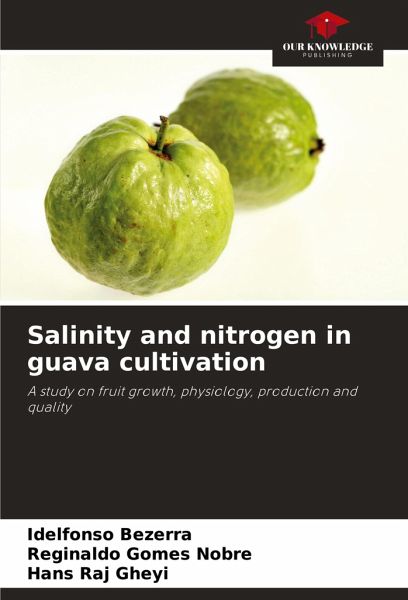
Salinity and nitrogen in guava cultivation
A study on fruit growth, physiology, production and quality
Versandkostenfrei!
Versandfertig in 6-10 Tagen
33,99 €
inkl. MwSt.

PAYBACK Punkte
17 °P sammeln!
The cultivation of irrigated guava trees in semi-arid areas highlights the need for information on plant behavior, the quality of irrigation water and nitrogen fertilization to enable exploitation. With this in mind, the aim was to evaluate the effect of different levels of irrigation water salinity associated with doses of nitrogen fertilization on the morphophysiological behavior, production and fruit quality of the Paluma guava tree. The experiment was conducted in open-air drainage lysimeters in the experimental area at the Center for Agrifood Sciences and Technology of the Federal Univers...
The cultivation of irrigated guava trees in semi-arid areas highlights the need for information on plant behavior, the quality of irrigation water and nitrogen fertilization to enable exploitation. With this in mind, the aim was to evaluate the effect of different levels of irrigation water salinity associated with doses of nitrogen fertilization on the morphophysiological behavior, production and fruit quality of the Paluma guava tree. The experiment was conducted in open-air drainage lysimeters in the experimental area at the Center for Agrifood Sciences and Technology of the Federal University of Campina Grande, Pombal, Paraíba. The treatments consisted of a combination of five levels of electrical conductivity of the irrigation water (0.3; 1.1; 1.9; 2.7 and 3.5 dS m-1) and four doses of nitrogen (70; 100; 130 and 160% of the recommended dose for pot testing). A randomized block statistical design was used, in a 5x4 factorial scheme, with three replications.





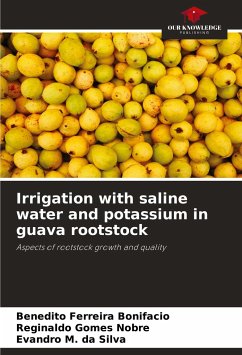
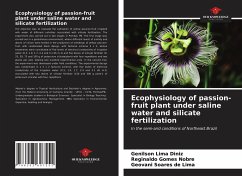
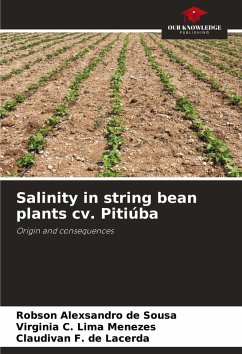
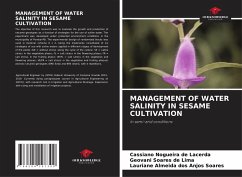
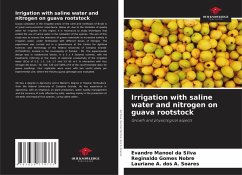

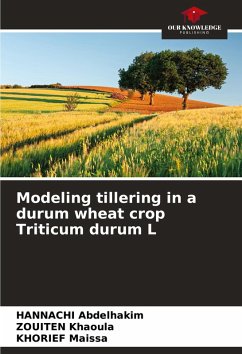
![ECOPHYSIOLOGY AND TEA CULTIVARS [Camellia sinensis (L.) O. Kuntze]. Cover ECOPHYSIOLOGY AND TEA CULTIVARS [Camellia sinensis (L.) O. Kuntze].](https://bilder.buecher.de/produkte/62/62292/62292622n.jpg)
